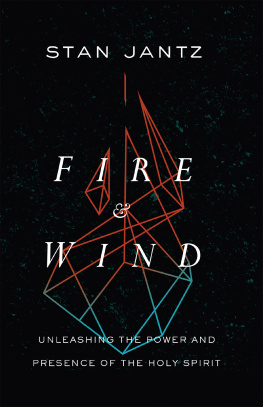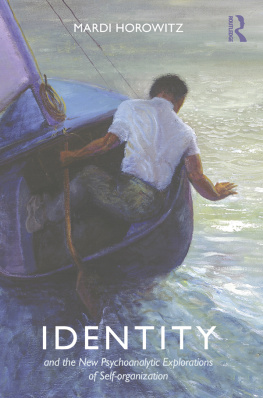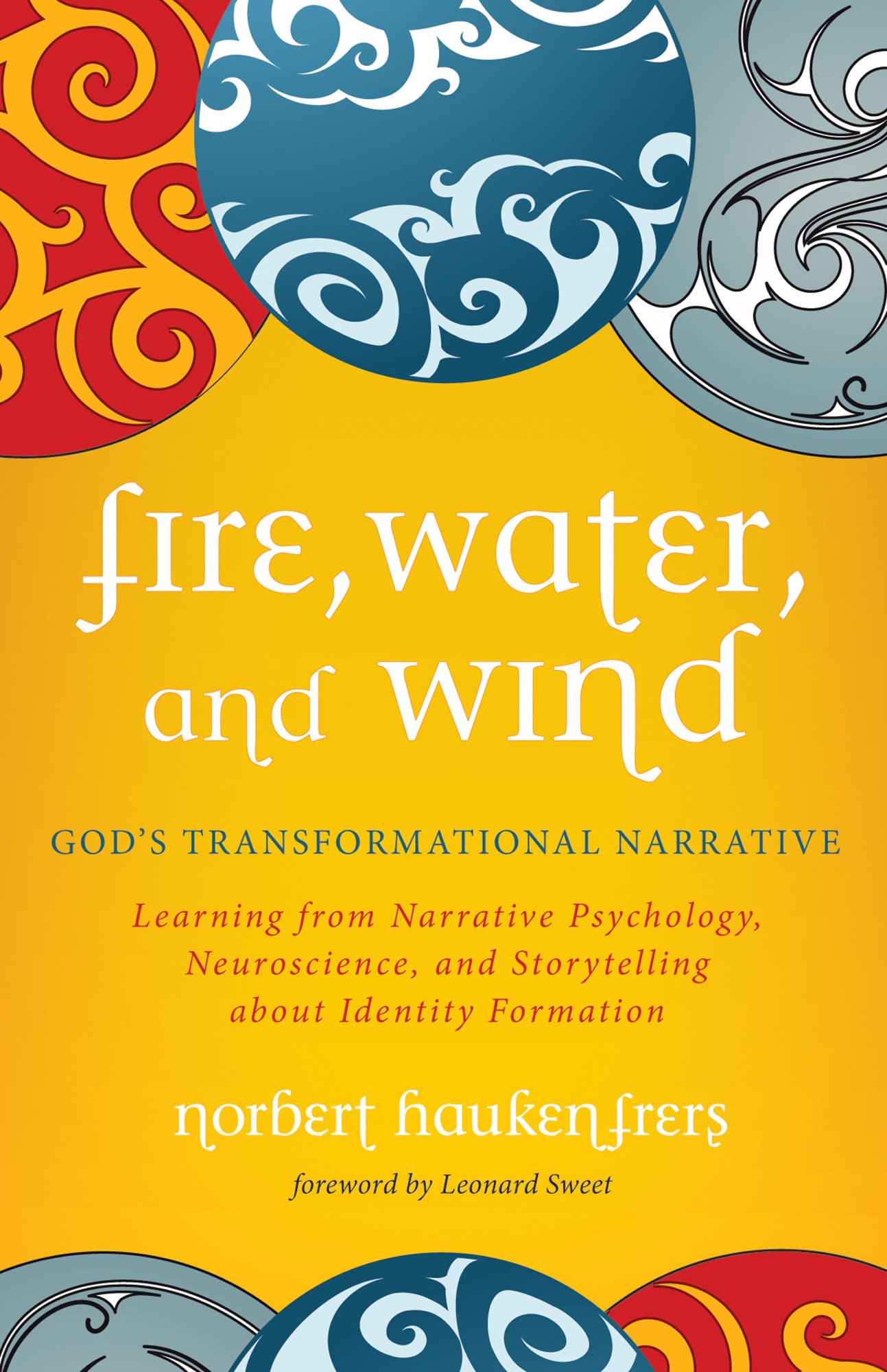All our life, so far as it has definite form, is but a mass of habits .
William James
Part
Narrative Psychology and Neuroscience
H e was ten years old when he started cutting himself. Most of his childhood he bounced between foster homes and the various towns and reserves of his extended family. He had an older sister and two younger brothers, but rarely spent time with them. Everyone thought of him as a problem child. What he knows of his family is that his grandparents were taken from their parents and shipped to a residential school, like freight in a boxcar. It was at this reformatory, disguised as a school, that they were forbidden to speak the language of their forefathers and given white mans haircuts and clothes. Everything that had helped them understand who they were was either taken from them or declared evil. His mother, preoccupied with her own survival, didnt know who his dad was. The only people that paid attention to him were teachers, social workers, principals, police officers, and his moms angry, drunk boyfriends. In his teens, seeking to be valued, he began spending time with gangsters, drug-dealers, and bartenders; they offered him a sense of belonging and a way of escape. They didnt deny his pain, his toughness, or his value. He confused their selfish valuations for love. This is the way of love and relationships that he learned. It was all about what you could get out of somebody. You loved them so long as they added value and when they no longer did, they became expendable.
When I met Ben, he had been out of the foster care system for six years. Without a home, he had been living between rehab, girlfriends, odd jobs, and mostly avoiding prison. He tried to keep it together, going to -day dry-outs, attending various -step groups, participating in court mandated anger management programs, and numerous stints in various skills training programs. This way of living was interspersed with visits to the psych ward, mostly when his ability to cope collapsed, and numerous nights in various drunk tanks. He would do all right for a while, but then a crisis, or a stressor, would trigger him and he would begin his downward spiral once again.
Can Ben ever escape this cycle, isnt this who he is? Is it possible or desirable for him to change who he has become? As we look at the contributions of the neurosciences, logo therapy, narrative psychology, and -step programs, we see that they all indicate that change is possible, and often desirable. They all seem to agree that this type of a change requires a narrative understanding of who one is and where one fits in the grand scheme of things: this narrative way opens the door for a dynamic understanding of Christian identity formation.
Narrative Psychology
W e all have routines, many that require no attention or explaining, and we follow them as if on autopilot. We follow these practices without any thought or attention; we call these things habits. This morning when you brushed your teeth did you start singing Elmos song, Brush, brushy brush, brushy brush brush, or are you more the Barney type, singing, Oh Im brushing my teeth on top, its so much fun I hate to stop, thinking, gently, circles small, slowly moving around the outside and to the inside? When someone starts telling us about the ordinary, they quickly lose our attention. Yet, when that routine is interrupted, by the unexpected or unimaginedsay you chip a toothone struggles to make sense of what has transpired and what one has experienced. It is in these unexpected and unimagined situations that people create or alter stories, revising them to make sense of what just happened. It is with stories that we order and find purpose to our lives. Dan McAdams, a pioneer in narrative psychology, suggests that our stories need to be constantly evolving in order to help us make sense of life. The reality is that we are constantly adjusting to include more information and new experiences. It is with the help of these evolving stories that we piece together what may be an unintelligible assortment of events and experiences, and get some sense of meaning or purpose.
Our stories define how we understand others, the world, and ourselves. Everything that we observe or experience is checked against our existing web of stories. If the story fits we add it to our web of understanding,; if it doesnt fit we try and adjust the story to fit within our web. If the story still doesnt fit we either adjust our web to accommodate this story and sometimes we cant see how it belongs, we either hang-on to it, keeping our options open, or we discard the story. The story of our lives is integral to the development of and understanding of who we are. The story of ourselves, that we tell ourselves, is understood to play a significant and primary role not only in constructing meaning within the context of our experiences but also in determining our emotional health and happiness.
Researchers have developed a test that enables them in twenty questions to determine that adolescents who report knowing more stories about their familial past show higher levels of emotional well-being, and also higher levels of identity achievement, even when controlling for general level of family functioning. These twenty questions are referred to as the Do You Know Scale (DYK). It is an interesting narrative exercise and a great conversation starter with your family and friends. To discover your DYK number you answer the following questions, answering yes or no.
Do you know how your parents met?
Do you know where your mother grew up?
Do you know where your father grew up?
Do you know where some of your grandparents grew up?
Do you know where some of your grandparents met?
Do you know where your parents are married?
Do you know what went on when you were being born?
Do you know the source of your name?
Do you know some things about what happened when your brothers or sisters were being born?
Do you know which person in your family you look most like?
D o you know which person in the family you most act like?
Do you know some of the illnesses and injuries that your parents experienced when they were younger?
Do you know some lessons that your parents learned from good and bad experiences?
Do you know some things that happened to your mom and dad when they were in school?
Do you know the national background of your family (such as English, German, Russian, etc.)?
Do you know some of the jobs that your parents had when they were growing up?
Do you know some awards that your parents received when they were young?
Do you know the names of the schools your mom went to?
Do you know the names of the schools your dad went to?
Do you know about the relative whose face froze in a grumpy position because he or she did not smile enough?
Your score is determined by the number of questions that you answered yes to. The higher the number, the more likely you are to be emotionally healthy and function out of a known identity, your story.
The narratives that we develop and incorporate shape our understanding of who we are. It is from this raw material of experiences that we construct a story that gives order or makes some sense of our observations and experiences. These stories we craft are offering us a way of seeing and understanding life; healthy stories assist individuals in giving unity and purpose to ones life, unhealthy stories lead to despair and death.
Historical Foundations of Narrative Psychology
Victor Frankl observed, while a prisoner in a Nazi concentration camp, that some fared better than others in the tyrannical culture of defeat, and concluded that how one handled these atrocities within their stories enables some, himself included, to continue living with some sense of meaning and purpose, even in the most horrendous of situations. It is out of his experience that Frankl developed Logotherapy as a therapeutic tool to assist those in particularly desperate situations in finding meaning and purpose in life. Logothereapy is based on an existential analysis focusing on Kiekegaards will to meaning.










